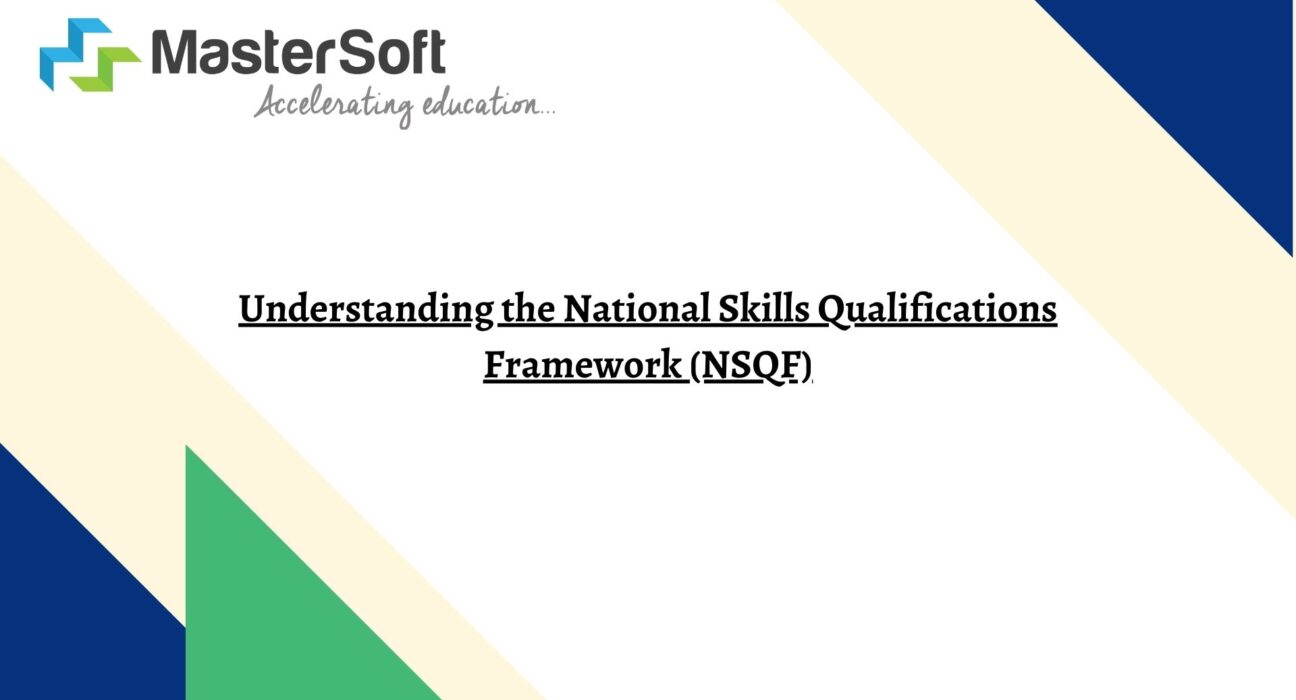Understanding the National Skills Qualifications Framework (NSQF)

The National Skills Qualifications Framework (NSQF) is a government-led initiative in India aimed at standardizing and promoting skill development across the nation. Introduced by the Ministry of Skill Development and Entrepreneurship, NSQF is a competency-based framework that organizes qualifications based on knowledge, skills, and aptitude.
Key Objectives of NSQF
- Promoting Skill Development: NSQF focuses on equipping individuals with industry-relevant skills to enhance employability. The framework encourages educational institutions to align their curricula with industry standards to foster skill-based learning.
- Structured Qualifications: The NSQF organizes qualifications into levels, from foundational to advanced, ensuring that learners can progress through different stages of education and training. Each level is defined by descriptors that outline the learning outcomes in terms of skills, knowledge, and aptitude.
- Recognizing Prior Learning: One of the significant benefits of NSQF is that it allows for the recognition of prior learning (RPL). This means individuals who have acquired skills through informal or non-formal learning can get certified at a corresponding NSQF level. It helps workers in the unorganized sector formalize their qualifications and opens doors to better opportunities.
- Standardization Across Sectors: The framework applies to various sectors, including agriculture, healthcare, construction, IT, and more. It ensures consistency in the quality of skills imparted across different industries, thus raising the standards of vocational training.
- Global Recognition: By aligning with international qualifications, the NSQF enables Indian workers and professionals to meet global standards. This boosts their chances of employability abroad, contributing to the larger vision of a globally mobile workforce.
Structure of NSQF
The NSQF consists of ten levels:
- Levels 1-4: Basic entry-level skills and foundational knowledge, typically aligned with school-level education or vocational training.
- Levels 5-7: Intermediate skills that involve more technical knowledge, often aligned with diploma or undergraduate degrees.
- Levels 8-10: Advanced skills, typically aligned with postgraduate education, high-level professional qualifications, and specialized expertise.
Each level is determined by factors such as the complexity of the tasks, degree of supervision required, and the range of skills demonstrated.
Impact on Education and Employment
- Bridging the Skills Gap: NSQF helps bridge the gap between academic education and industry requirements by creating a clear pathway for skill-based training. With this framework, students can make informed decisions about their educational and career paths.
- Enhanced Employability: With an emphasis on practical skills, individuals who are certified under NSQF are more likely to meet industry standards, making them more employable. Additionally, companies benefit from hiring employees with validated skills, leading to increased productivity.
- Opportunities for Lifelong Learning: NSQF promotes lifelong learning by encouraging individuals to continually upskill or reskill. This adaptability is particularly important in a rapidly changing job market where technological advancements constantly redefine skill requirements.
- Boosting the Unorganized Sector: A significant portion of India’s workforce operates in the unorganized sector, where formal qualifications are rare. Through initiatives like RPL, NSQF helps workers in sectors such as construction, farming, and textiles gain formal recognition of their skills, improving their employability and income prospects.
- Encouraging Women’s Participation: By providing accessible skill development pathways, NSQF helps promote gender equality in the workforce. Women who may not have had access to formal education can get certified for their skills, empowering them to enter the formal job market.
Challenges and Opportunities
While the NSQF offers many benefits, there are also challenges in its widespread implementation. Some of the major hurdles include:
- Awareness and Adoption: Many educational institutions and employers are still unaware of the NSQF’s potential. Greater awareness and more collaborative efforts between the government, industries, and educational bodies are needed for the framework to be fully effective.
- Infrastructure and Capacity Building: To fully implement NSQF, there is a need for well-equipped training centers and institutions that can offer standardized skill development courses. Ensuring that trainers are adequately qualified and that facilities meet industry standards are crucial steps toward achieving NSQF’s goals.
- Continuous Evaluation: NSQF needs to adapt continuously to industry changes, especially with the rapid evolution of technology. Regular evaluation and updating of qualifications and training methodologies are necessary to keep the framework relevant.
Conclusion
The National Skills Qualifications Framework (NSQF) is a transformative initiative that addresses the need for a skilled and employable workforce in India. By aligning education with industry needs and providing pathways for continuous learning and upskilling, NSQF helps individuals gain the qualifications they need to succeed in an increasingly competitive job market.
As India continues to grow economically, initiatives like NSQF will play a critical role in ensuring that its workforce remains globally competitive. For individuals, businesses, and the nation as a whole, the NSQF presents a tremendous opportunity to enhance skills, boost employability, and drive sustainable development.





